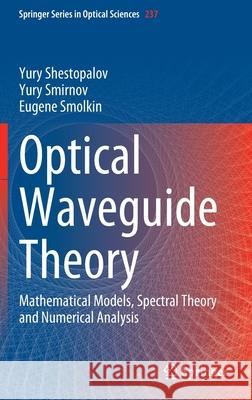Optical Waveguide Theory: Mathematical Models, Spectral Theory and Numerical Analysis » książka
topmenu
Optical Waveguide Theory: Mathematical Models, Spectral Theory and Numerical Analysis
ISBN-13: 9789811905834 / Angielski / Twarda / 2022 / 272 str.
Optical Waveguide Theory: Mathematical Models, Spectral Theory and Numerical Analysis
ISBN-13: 9789811905834 / Angielski / Twarda / 2022 / 272 str.
cena 605,23
(netto: 576,41 VAT: 5%)
Najniższa cena z 30 dni: 578,30
(netto: 576,41 VAT: 5%)
Najniższa cena z 30 dni: 578,30
Termin realizacji zamówienia:
ok. 16-18 dni roboczych.
ok. 16-18 dni roboczych.
Darmowa dostawa!
Kategorie BISAC:
Wydawca:
Springer
Język:
Angielski
ISBN-13:
9789811905834
Rok wydania:
2022
Ilość stron:
272
Waga:
0.55 kg
Wymiary:
23.39 x 15.6 x 1.6
Oprawa:
Twarda
Wolumenów:
01
Dodatkowe informacje:
Wydanie ilustrowane











